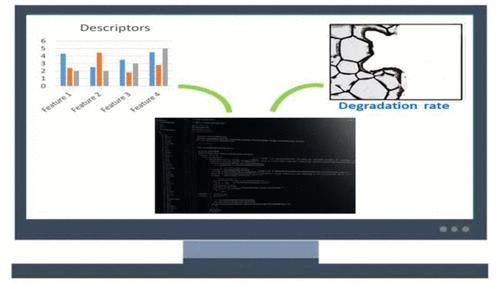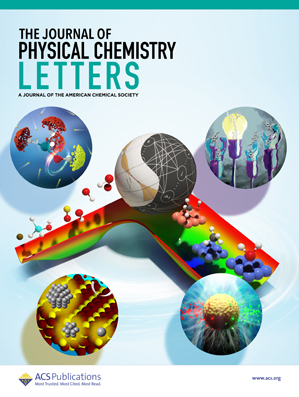Machine Learning Prediction of the Corrosion Rate of Zinc-Based Alloys Containing Copper, Lithium, Magnesium, and Silver
IF 4.8
2区 化学
Q2 CHEMISTRY, PHYSICAL
引用次数: 0
Abstract
Implementation of machine learning (ML) techniques in materials science often requires large data sets. However, a proper choice of features and regression methods allows the construction of accurate ML models able to work with a relatively small data set. In this work, an extensive, although still limited, experimental data set of corrosion-related properties of Zn-based alloys used in biomedicine was created. On the basis of this data set, a robust and accurate model was built to predict the corrosion behavior of Zn-based alloys. This work highlights the effectiveness of ML methods for assessing the corrosion behavior of Zn-based alloys, which can facilitate their application in bioimplants.

含铜、锂、镁和银的锌基合金腐蚀速率的机器学习预测
在材料科学中实现机器学习(ML)技术通常需要大量数据集。然而,正确选择特征和回归方法可以构建精确的机器学习模型,能够使用相对较小的数据集。在这项工作中,创建了一个广泛的,尽管仍然有限的,用于生物医学的锌基合金的腐蚀相关特性的实验数据集。在此基础上,建立了一个可靠、准确的模型来预测锌基合金的腐蚀行为。这项工作强调了ML方法在评估锌基合金腐蚀行为方面的有效性,这可以促进它们在生物植入物中的应用。
本文章由计算机程序翻译,如有差异,请以英文原文为准。
求助全文
约1分钟内获得全文
求助全文
来源期刊

The Journal of Physical Chemistry Letters
CHEMISTRY, PHYSICAL-NANOSCIENCE & NANOTECHNOLOGY
CiteScore
9.60
自引率
7.00%
发文量
1519
审稿时长
1.6 months
期刊介绍:
The Journal of Physical Chemistry (JPC) Letters is devoted to reporting new and original experimental and theoretical basic research of interest to physical chemists, biophysical chemists, chemical physicists, physicists, material scientists, and engineers. An important criterion for acceptance is that the paper reports a significant scientific advance and/or physical insight such that rapid publication is essential. Two issues of JPC Letters are published each month.
 求助内容:
求助内容: 应助结果提醒方式:
应助结果提醒方式:


